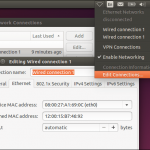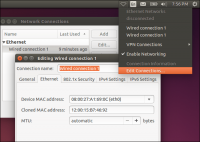How I Learned To Stop Hating Networking Events (Mostly)
“Would you like the opportunity to network with some of the most influential professionals in your field?” asks the latest invite to hit your inbox. Of course you wouldn’t—networking totally sucks, you remind yourself as you scroll down looking for that minuscule “unsubscribe” link.
It’s true that networking events are often pretty unpleasant. But it’s also true that if you’re looking for a new job or trying to pitch your business, there’s still no substitute. Getting a bunch of professionals in the same room for a couple hours, handing out drinks, and letting them mingle is still one of the surest ways to make the connections you need to get where you’re trying to go.
If you can accept that fact, you can network effectively—even if that’s something you usually hate doing. These five tips can help you make your next networking event a minimally painful and actually useful experience.
1. Stop Fiendishly Swapping Business Cards
Some people at networking events will literally shake your hand with one hand and proffer their business card with another. Don’t be that person. This is not a baseball card convention, and you don’t win a prize by collecting the most business cards.
Instead, when you meet someone, say hello, shake hands, then mention something that has nothing to do with your work—leaving your business card in your pocket. The point isn’t to become a walking version of your resume, it’s simply to start getting to know people.
As Mary Olson-Menzel, the head of an executive search firm, tells Fast Company, having three solid conversations is better than walking out with 30 cards in your pocket from people you barely met.
Read more: 8 Common Networking Disasters And How To Avoid Them
2. Share Stories, Not Just Facts
Eventually, most networking-event conversations will swing back toward something work-related anyway, even if you start them off more casually. But handled the wrong way, that’s exactly where they might end:
Your new connection: So what do you do?
You: I work at a small branding agency, [name of the agency that your new connection hasn’t heard of]. What about you?
Them: I’m a sales VP for a pharmaceutical company.
You: Oh, how long have you been there?
Them: About four years. You?
You: Coming up on two.
Them: Cool, cool . . .
Wow, scintillating. You could’ve found that out on LinkedIn. Worse still, you’ve just confirmed that your professional roles have apparently nothing to do with each other. Now you’re scanning the room for other people to go talk to.
Instead, when someone asks you what your job is, tell them that and also what you did previously. You don’t need to recap your entire career trajectory. For instance, I might say, “I’m an editor at Fast Company, and before that I worked in book publishing and later covered the industry.” This way you won’t just be talking about your jobs (sharing data), you’ll be talking about your careers (swapping stories).
That makes for better conversation, which is an upside all by itself. But there’s another benefit, too: People now change careers, not just jobs, more rapidly than ever, so there’s a decent likelihood that you’ll discover more overlapping experiences this way than if you just stick to discussing what you currently do.
3. Ask Why And How
People love to talk about themselves, including you. So try and pull back, giving others the floor. To do that, Stand Out author Dorie Clark says to ask open-ended questions. “‘How long have you lived in New York?’ is a decent question,” she writes, “but ‘Why did you move to New York?’ is likely to yield a much more interesting answer, and new conversational directions.”
Not only does this leave more room for the person you’re talking with to talk about themselves, it also gets back to moving from facts to narratives. To do that, you need to guide conversations toward cause and effect—toward understanding someone’s motivations. Ask things like, “How did you get into that role?” or “What made you decide to leave?”
Read more: How To Figure Out What To Say At Networking Events
4. Bring A Buddy—But Not A Posse
Arriving solo to a networking event can be intimidating. Chances are you’ll have to break up an existing conversation in order to find somebody to talk to. So show up with a friend or colleague, just don’t drag in half your office.
Trios, at least in my experience, are more flexible in networking situations. You’re free to approach somebody on your own while two friends chat nearby (but can retreat to them if need be), or else a pair of people can easily strike up a group conversation with your circle. If it’s just you and a friend, though, now you’re the duo that someone else needs to interrupt.
Whatever your exact numbers, one obvious benefit of being part of a small group is that you wind up meeting more people, but another is that it spares you from getting locked into fruitless one-on-ones that are hard to excuse yourself from.
5. Use Your Own Time Wisely
It’s important to know when to leave—and when to not go at all. There’s such a thing as networking malaise. Many such events take place after a long workday, and summoning the energy to socialize with strangers at that point can be a real chore. Dud events—and there will be duds—can feel like a real letdown, especially if you’re actively looking for a new job. That’s a frustrating process all by itself, so a string of what turn out to be pointless networking experiences might leave you feeling pretty dejected.
If you can tell after the first 15 minutes that there probably aren’t the right type of connections here for you, don’t stick it out. And if you get an invitation to something that looks only sort of maybe a little interesting, think twice. It’s okay to be equal parts discriminating and optimistic in terms of the kinds of get-togethers you choose to attend.
The flip side, of course, is knowing when to go the extra mile and turn what might be a regular event for other people into a networking event for you. Early in my career, while I was trying to work out an exit from book publishing, I hopped on a bus from New York to Washington, D.C., for a media company’s holiday party that a friend had invited me to. It was much more fun and relaxed than a purpose-built networking event, and I had two or three great conversations I wouldn’t have had otherwise.
That helped secure me a few more writing gigs, which at the time were worth their weight in round-trip bus fare. Best of all, not a single business card changed hands.
Fast Company , Read Full Story
(24)














